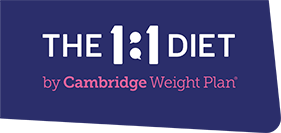Have you gained weight over the wintertime or during the COVID-19 lockdowns? You’re certainly not alone in this. Our changed habits during the lockdown, including decreased movement and increased accessibility to the fridge, means that many of us have gained weight, but another important factor which may have contributed to increased weight gain is stress.
Research has shown that chronic stress may contribute to weight gain. When under stress, our body releases its primary stress hormone – cortisol. The role of cortisol is to help mobilise energy to our body to deal with the stress, which in turn stimulates appetite and triggers hunger. In particular, we’re more likely to crave high fat, high sugar foods (hello chocolate croissants!). Cortisol has several other negative effects on our physical health, including the increased storage of belly fat – so unfair!!
So if your waistline has expanded this year, an important first step to getting back on track is to start by practising a little bit of self-compassion. Many of us engage in self-criticism when we are feeling low or have gained weight, but often when we criticise ourselves, this can be a vicious cycle which leads us to feel worse (and more stressed!) and to then engage in more comfort eating.
Starting with some self-compassion by acknowledging that this has been a challenging year is important, and can allow you to focus on what’s going to be helpful, rather than getting bogged down with negative self-talk. Practice speaking to yourself like you would speak to a close friend or loved one and remind yourself that staying on track with healthy eating is hard! With a focus on self-compassion in mind, you can then shift your behaviour towards being proactive about weight loss. Here are my top three tips to help you decrease your stress levels and to get back on track towards your goal weight.
1) Focus on stress management. Decreasing our stress levels can help reduce cortisol levels, which can be an important part of weight loss. Two simple strategies to de-stress and decrease your cortisol levels is to make sure that you are getting a good night’s sleep, ideally 7-8 hours, and increase your exercise. So get your walking shoes on and enjoy the sunshine, and make sure you turn off the Netflix and get to bed on time!
2) Consider journaling. Writing your thoughts and feelings down can be a great way to de-stress, to help you express your feelings in an alternative way, rather than engaging in comfort eating to deal with emotions.
3) Enlist support! Sharing our feelings with friends and families is a great way to reduce our stress levels and when we share our goals with others, this also builds accountability. If you’re finding that you’re struggling to resist temptation and set goals, a 1:1 Diet Guardian Angel can help you to learn how to set realistic goals and to learn how to deal with setbacks that might arise on your weight loss journey. Find a Consultant today!
Author – Jemma Doley is a Registered Psychologist and Coach with a passion for positive psychology and helping people to achieve their health and well being goals.




